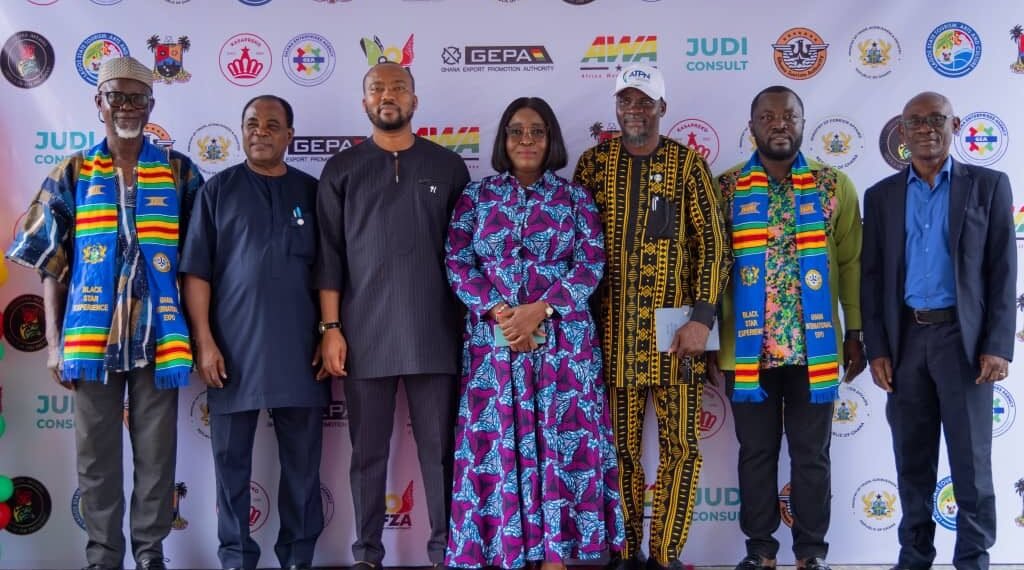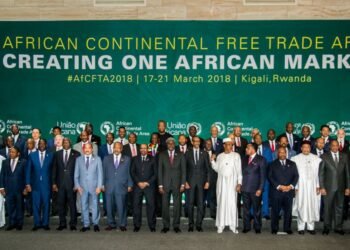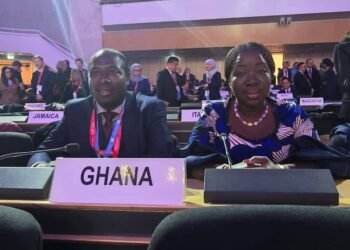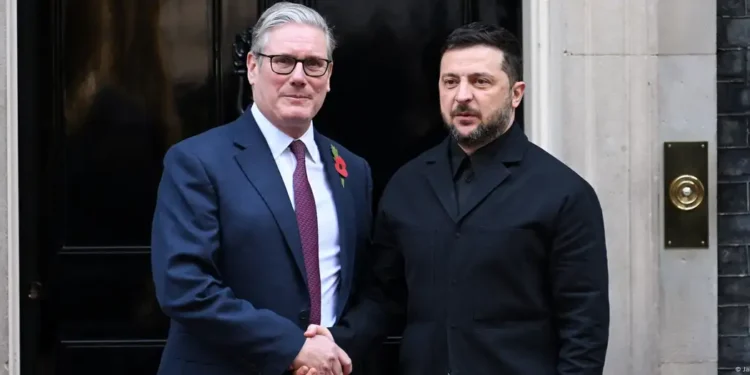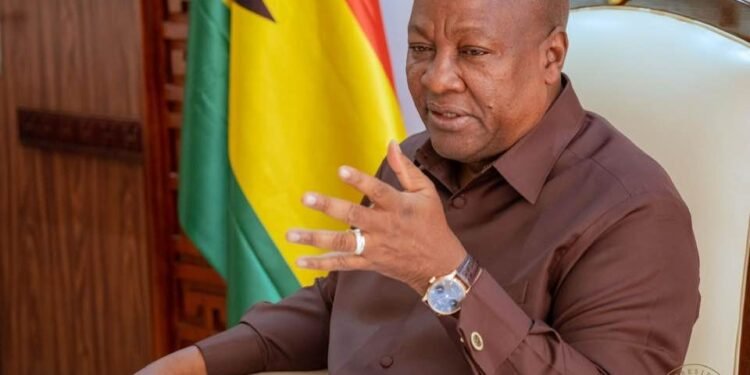Africa, a continent brimming with natural resources, human capital, and innovation, remains underutilized in terms of intra-continental trade.
According to the Ghana Export Promotion Authority (GEPA), trade between African nations currently stands at a mere 15% of total trade volume—far below Europe’s 69% and Asia’s 59%. This striking gap, described as “an enormous opportunity” by GEPA’s Deputy CEO, Mr. Ambrose Edwin Nsarkoh, signals both a challenge and a golden opportunity for the continent.
At the Ghana International Expo and Investment Forum (GIEBF) 2025, held in Lagos, Nigeria, GEPA strongly emphasized the transformative role of intra-African trade and tourism in advancing economic resilience and prosperity. The message was clear: Africa has the capacity to unlock a multi-trillion-dollar market if nations commit to deeper regional integration.
Ghana’s Leadership in Export-Led Transformation
Mr. Nsarkoh highlighted Ghana’s ambitious export-led transformation agenda, anchored by initiatives such as the Accelerated Export Development Agenda and the government’s 24-hour economy policy. These programs aim to maximize productive capacity, expand market access, and position Ghana as a leading player in regional trade.
GEPA has set an audacious target to grow Ghana’s export revenues from $4 billion to $10 billion by 2029. But beyond the numbers, this vision reflects an urgent drive to create jobs, boost industrial capacity, and secure economic resilience.
“When African countries trade more with each other, we create jobs for our youth, retain value within our economies, and build the industrial capacity necessary for sustainable development.”
Tourism, often overlooked as an economic driver, was also spotlighted at the forum as a vital complement to trade. Intra-African tourism fosters cultural exchange, stimulates local industries, and attracts investments in infrastructure. By strengthening tourism, African nations can deepen ties, build shared prosperity, and diversify their economies away from heavy reliance on raw material exports.
MSMEs: The Heartbeat of Africa’s Economy
Adding her voice, Ms. Margaret Ansei, CEO of the Ghana Enterprises Agency (GEA), stressed the critical role of Micro, Small, and Medium Enterprises (MSMEs) in unlocking Africa’s trade potential. She described MSMEs as “lifelines” of the African economy, employing over 80% of the workforce and contributing significantly to GDP.
However, persistent challenges—such as limited access to finance, fragmented markets, and inadequate digital tools—continue to hold back small businesses. Ms. Ansei called for deliberate action to dismantle these barriers, urging policymakers and investors to prioritize MSME empowerment.
She spotlighted GEA’s BizBox Project, launched in partnership with the Mastercard Foundation, which aims to create 250,000 dignified jobs while equipping MSMEs with tools for cross-border trade readiness. “Inclusivity is not charity, it is smart economics. When women thrive, families thrive. When young people are empowered, communities grow,” she stated.
The African Continental Free Trade Area (AfCFTA), headquartered in Accra, Ghana, represents one of the most significant milestones in Africa’s economic history. With its promise of a single continental market for goods and services, AfCFTA is projected to lift 30 million people out of extreme poverty while boosting Africa’s income by $450 billion by 2035.
Speakers at the GIEBF 2025 stressed the importance of translating AfCFTA’s policies into tangible outcomes for African entrepreneurs. By reducing tariffs, harmonizing regulations, and investing in infrastructure, the agreement could bridge Africa’s fragmented markets and unleash the continent’s full economic might.
Mr. Nsarkoh commended the Ghana High Commission in Nigeria for championing economic diplomacy and fostering cross-border collaboration. He urged other diplomatic missions to replicate such efforts to deepen regional partnerships.
“To our Nigerian hosts and participants from across the continent, GEPA stands ready to be your partner in exploring the vast opportunities Ghana offers, from cocoa to technology, and from agriculture to financial services.”
Mr. Nsarkoh
The Lagos forum, the first of its kind held outside Ghana, convened policymakers, investors, and business leaders in an unprecedented show of unity. Discussions, exhibitions, and networking sessions reinforced the theme of unlocking Africa’s $6 trillion trade potential through greater collaboration in trade and tourism.
In the intervening time, Africa stands at a turning point. With its youthful population, abundant resources, and entrepreneurial spirit, the continent has all it takes to become a global economic powerhouse. But this will only be realized if intra-African trade is prioritized, MSMEs are empowered, and tourism is leveraged as a growth driver.
GEPA’s rallying call at GIEBF 2025 was not merely about trade figures or export targets—it was about reimagining Africa’s economic future. By seizing this $6 trillion opportunity, Africa can write a new chapter of prosperity, resilience, and shared growth for generations to come.
READ ALSO: Ghana Stock Exchange Maintains 4-Week Upward Momentum



